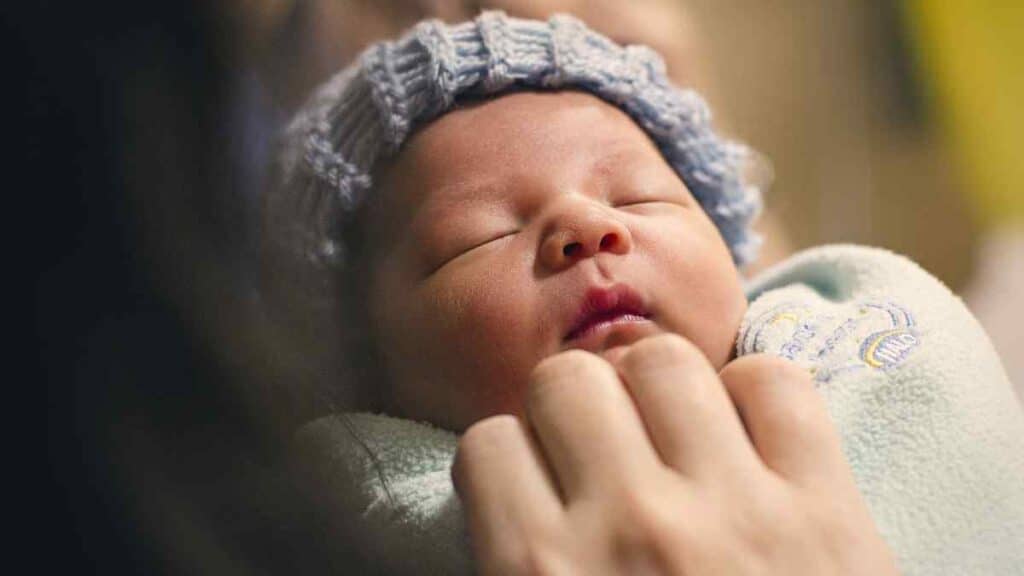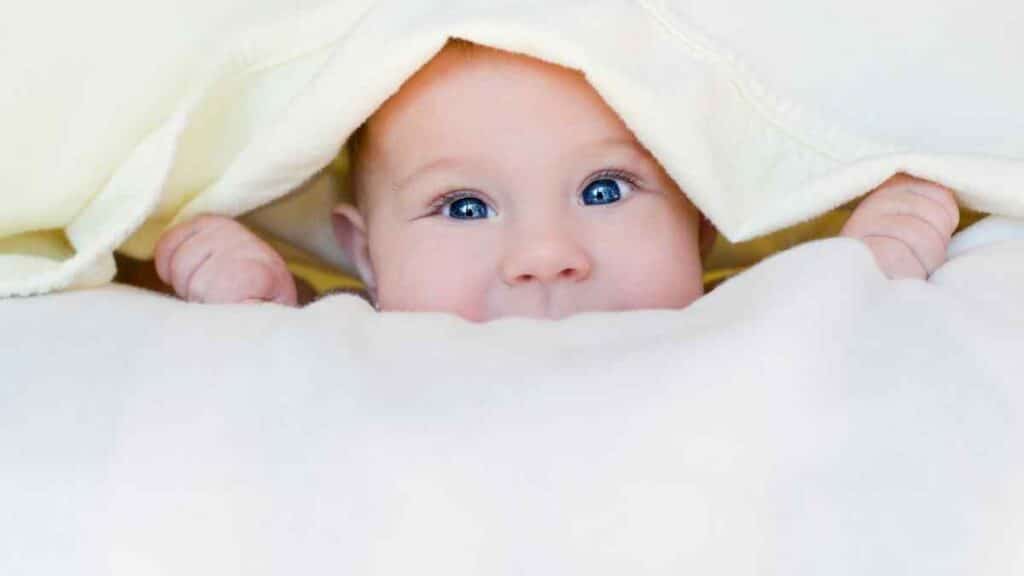As a parent or caregiver, ensuring your child’s baby formula is healthy and happy is one of your top priorities. Diarrhea is a common problem in babies and young children that many things, including the type of formula used, can cause.
Let’s explore whether a milk formula can cause diarrhea in babies and what factors may contribute to this issue. Even more, let’s discover the steps you can take to help prevent and treat it. Whether you’re a new parent or an experienced caregiver, understanding the causes and treatments of diarrhea in infants is essential for keeping your little one healthy and happy.

General Causes of Diarrhea in Formula-fed Babies
For many parents, one of the most concerning issues they may face is their baby’s digestive health. Diarrhea is a common problem in most formula-fed babies, which can cause distress to the infant and their parents. Let’s discuss the primary causes of diarrhea in formula-fed babies to help you understand the root cause of your baby’s poop problem.
Allergic Reaction to Formula
One of the most common reasons infants experience baby diarrhea is lactose intolerance or allergy to the formula they consume. For instance, some breastfed babies are allergic to cow’s milk proteins, while others may be allergic to soy formula or particular types of solid foods. So, if your baby is experiencing vomiting or gas alongside diarrhea, it may be a sign of formula allergy or intolerance.
Infection
Infections are another common cause of baby diarrhea are infections. Since a baby’s immune system is still developing, they become more susceptible to infections, even those that cause diarrhea as a symptom. The most common infections include viral or bacterial infections such as salmonella or norovirus. In most cases, infections like these can cause fever and dehydration.
Antibiotics
Even breastfed babies prescribed antibiotics for any reason may experience diarrhea as a side effect. Antibiotics can disrupt the delicate balance of good and bad bacteria in the gut, leading to diarrhea. However, it is essential to complete the prescribed course of antibiotics to prevent the recurrence of the infection.
Teething
Although teething is an entirely natural process that happens in babies, there are times when it can also cause baby diarrhea. That’s because the increase in the baby’s salivation during teething can often result in baby diarrhea. However, teething is also temporary and should cause you any concern.
Overfeeding
Although it may not seem like it, excessive formula feeding can cause your baby’s tummy to bloat, making it difficult for their body to digest all the baby formula, resulting in watery stools. So, it’s essential always to follow the pediatrician’s recommended schedule of feeding to avoid mild diarrhea.

Do Switching Formulas Cause Diarrhea?
Every parent has a strategy for providing nutrients for their child. While some prefer breast milk, others prefer giving infant formula to their babies. Parents can switch between many infant formulas on the market to meet their baby’s needs.
However, there are instances when switching formula products can cause diarrhea in some formula-fed babies. Diarrhea is a common issue that occurs when there is a change in the baby’s digestive system. Here are some of the reasons why switching formulas can cause diarrhea in some babies:
Abrupt Formula Change
One of the most common reasons why formula change causes mild diarrhea is when there’s an abrupt change in the formula. Remember that different types of formulas have different nutritional compositions, including different amounts and types of proteins, fats, and sugars. If your baby suddenly switches formulas, their digestive system can’t adjust quickly, causing diarrhea.
Bacterial Contamination
Although it rarely happens, switching formulas can cause a baby’s diarrhea because of bacterial contamination. Contamination from harmful bacteria like E. coli or Listeria can occur if the formula isn’t prepared or stored correctly. A baby can also experience severe diarrhea, vomiting, or fever when exposed to contaminated formula.
Antibiotic Medication
There are also instances when antibiotic treatment can cause babies to experience watery stools or even make their diarrhea worse. Antibiotics can adversely affect the delicate balance of bacteria inside your baby’s tummy, which may even cause mild to severe diarrhea. That’s why giving your baby’s tummy enough time to recover and adjust to the new baby formula is essential.
How Long Should A Baby Have Diarrhea After Switching Formula?
It’s only common for many parents and caregivers alike to switch formulas, especially when their babies have problems with their current formulae, like cow’s milk allergy or diaper rash. However, abruptly switching formula products can lead to side effects, including diaper rash and changes in the infant’s baby poop. And while most cases of diarrhea in formula-fed infants usually clear up within 24 hours, it can be distressing for both babies and parents.
Babies often experience problems with loose stools when there’s a change in their digestive system. In most cases, the body may not be able to digest or absorb the new formula properly, leading to loose stools. Baby poop problems usually clear up within a day without treatment. However, the duration of diarrhea may vary depending on the baby’s age, health, and the primary cause of the loose stools.
Coordinate with Your Pediatrician
If your baby is experiencing watery stools after switching formula, monitoring their symptoms and coordinating with their pediatrician is essential. Your child’s doctor will examine your baby to determine if it’s a cow’s milk protein allergy or any other reason that might be causing the illness.
Also, they will recommend the proper course of action to address the condition. It may include adjusting the feeding schedule, switching to solid foods, or different formulas. There are also cases when a pediatrician will recommend taking meditations to address your baby’s food allergy to prevent further complications.
Suppose your baby’s diarrhea is caused by switching to solid foods or breast milk to milk formula. In that case, the pediatrician might recommend switching back to what you’ve previously been feeding your baby or slowly transitioning to a new milk formula.
Following the doctor’s advice is essential, and not switching formulas without consultations. Sudden changes to your child’s nutritional intake may cause further complications. Meanwhile, Meanwhile, if the baby has diarrhea caused by an infection, the duration of diarrhea can vary, depending on the severity of the disease. In most cases, the pediatrician will recommend monitoring the baby’s symptoms and providing appropriate fluids to prevent dehydration. The pediatrician may recommend additional tests or medication if the baby has severe or prolonged diarrhea.

Causes of Diarrhea in Breastfed Babies
Unlike solid foods, breast milk contains all the necessary nutrients for your child’s growth. Not only does it contain enzymes, but it also has antibodies that can protect your breastfed baby from various diseases and infections. However, even babies used to breast milk can also experience diarrhea, which can cause their parents to worry. Let’s look at the few most common reasons why babies used to breast milk get diarrhea.
Sensitivity to Something in Mom’s Diet
One of the most common reasons why many breastfed babies experience diarrhea is when there are changes in the mother’s diet. Some diets may cause the infant’s digestive system to react, causing diarrhea. Foods usually have this effect: dairy, soy, wheat, eggs, caffeine, and spicy foods. If a mother suspects that her diet is causing diarrhea in her baby, she can try eliminating certain foods to see if there is an improvement in the baby’s symptoms.
Infection
Infection can also cause infant diarrhea. Otherwise known as viral diarrhea, babies are more prone to infections because of their developing immune systems. The most common infections include norovirus and rotavirus. When this happens, the infection is usually accompanied by other symptoms such as fever, dry mouth, and vomiting. When this happens, it’s crucial to reach out to the doctor immediately.
Antibiotics Used by Breastfeeding Mom
If the mother has been prescribed antibiotics for any reason, it can also affect the baby’s digestive system, leading to diarrhea. Antibiotics can disrupt the delicate balance of good and bad bacteria in the gut, leading to diarrhea. It is essential to complete the prescribed course of antibiotics to prevent the recurrence of the infection.
Treatments For Baby Diarrhea
Although most cases of diarrhea clear up within 24 hours without prior treatment, it can still be distressing for parents, especially if it’s their first child. So, if you’re one of the many parents who constantly worry about their child, don’t fret. Here are a few treatments that you can follow to address watery poop.
Rehydration
Normal stools are often solid. So, if you notice that your child has a very dry mouth because of diarrhea, then it’s best to keep your baby hydrated. It’s essential to replace lost fluids and electrolytes to prevent dehydration. Parents can offer the baby breast milk or formula more frequently or give an oral rehydration solution (ORS) to replace the lost fluids and electrolytes. ORS is a specially-formulated solution purchased at the pharmacy or made at home.
Probiotics
Probiotics are healthy gut microbiome that lives in the gut area, which helps restore the balance of good bacteria in the digestive system. It may help reduce the severity and duration of the condition, especially if your baby has diarrhea. Some formulas and drops contain probiotics that aid your baby’s regular bowel movements.
Adjusting Your Baby’s Diet
There are instances when adjusting the baby’s diet may help manage diarrhea. If the baby is formula-fed, switching to a different type of formula may be recommended, especially if you notice watery stools in your baby’s diaper. If the baby is older and has started solid foods, avoiding certain foods that can aggravate diarrhea, such as spicy, fatty, or fried foods, may be helpful. However, it is essential to consult a pediatrician before changing the baby’s diet.

Talk to Your Doctor (Conclusion)
Baby diarrhea is a common problem that you can manage with simple treatments. Rehydration, probiotics, adjusting the diet, medication, and rest are some of the most effective remedies for baby diarrhea. It’s also essential to ensure that your baby has access to clean water to ensure that there are less diarrhea instances.
If the baby is experiencing diarrhea, it is essential to monitor their symptoms and consult with their pediatrician. With the proper care and treatment, most babies will recover from diarrhea and resume regular feeding and activity.
Please feel free to ask me any questions you may have. I’ll do my best to provide a helpful answer!



